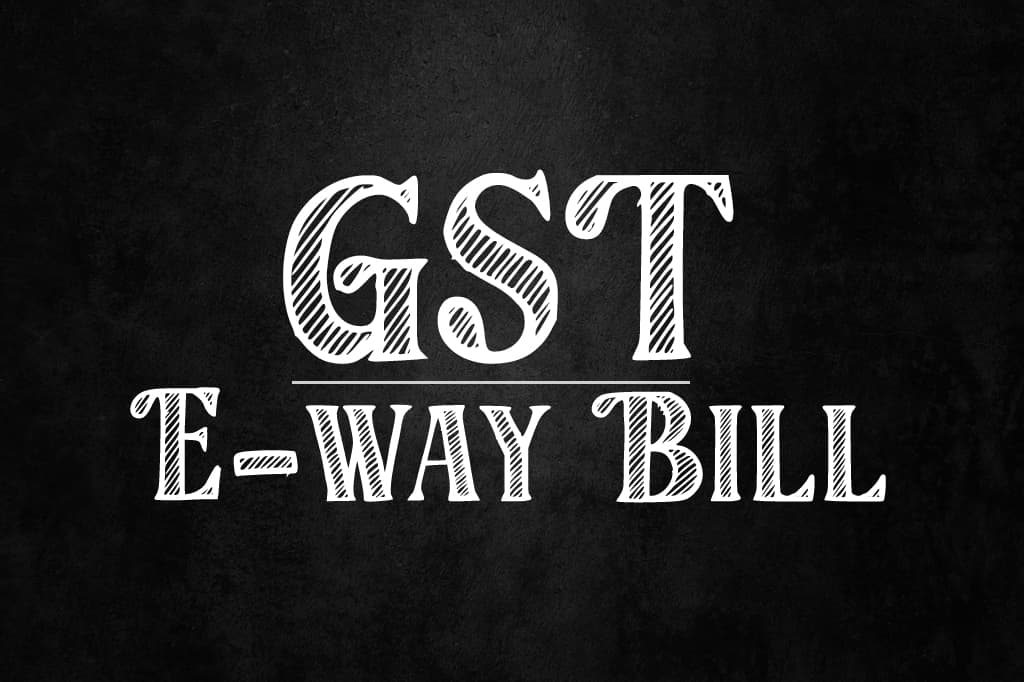Are you looking for smooth transit of goods?? Want to know where your goods are ?? E-way bills can help you out…..
The shortened form of e-way bill stands for electronic way bill. The Goods and Service tax introduced the GST E-way bill as a form for tracking goods in transit. A registered taxable person who transports goods worth Rs 50,000 is required to have an eway bill which can be electronically generated through GSTIN. Details on goods, sender, recipient and transporter shall also be included.
When an e-way bill is generated a distinctive E-way Bill Number is also generated. And it can be created or canceled using API, Android Apps, or SMS .
Who should create an eway bill ?
Every registered person who moves goods of a consignment value more than 50000 should prepare an eway bill. It will be necessary in case of product supply, movement of product for job work etc. A registered person means a person who is required to obtain registration under GST and also even if the value of goods is less than 50000 he can generate an e-way bill. In case of movement of goods from an unregistered person, it shall be the responsibility of the registered person(receiver) to generate E-way bills. If the supplier has not produced any e-way bill the transporter carrying goods by air, rail, road is required to.
Benefits of E-way Bill
The benefits of E-way bills is that it is Faster and more efficient for the movement of goods, No waiting time is required at checkposts, Improved tax compliance as bills are generated online, It is Simple and quick generation of e-way bill, it can be done online as Tax payers or transporters are not required to visit tax officers / checkpoints for generation of e-way bill.
Drawbacks of E- way Bill
Poor Internet facility which makes it difficult to generate an e-way bill. Also making it difficult for the transporters and dealers in dispatching goods because of the unfamiliarity with the internet and technology, there are challenges around the extension of E-way bill as it generates multiple e-way bill numbers for a single dispatch or invoice, also the technical glitches create delays and inconvenience in generating e-way bill as they are unavoidable .
Exemptions to E-way bill
E-way bill is not necessary if consignments value is less than 50000, the goods being shipped are exempted from GST, if goods are moved by non motorized means (such as trains) an invoice or challan should be carried throughout the transportation of goods while e-waybill is not necessary, Goods are delivered to an inland container depot or a container freight station from a port, airport, air cargo complex or land customs stations for aquarinclearance by the customs department .
Steps to Generate an E-way Bill Online Step1: Enter the login information to access the E-way bill generation platform at https://ewaybill.nic.in/.
Step2: To create a new e-way bill click on the option “Generate new” from E -way bill main menu page.
Step3: A new EWB bill generated appears, fill the necessary details required. If you are a recipient choose inward and if you are a supplier choose outward . Also add the details of recipient and supplier along with GSTIN wherever applicable. And when a registered GSTN is entered other details also get pulled into empty fields.
Step4: After proceeding , in the second half of the page you have to fill out the information regarding description of goods such as :
- Product name and description
- HSN Code for the product
- Quantity
- Unit
- Value/Taxable value
- CGST and SGST or IGST rates whichever applicable .
- Transporter details :approximate distance covered along with Transporter name and Transport ID .
Step5: Click on the ‘submit’ button . After your request is processed the e-way bill in Form EWB-01 with a unique 12 digit number is generated. A printed copy of the generated bill shall be given to the transporter till it is being handed over to consignee.
FAQ
- What is the penalty related to e-way bills?
The concerned person shall pay a penalty of Rs. 10,000 or equivalent amount of tax evaded by him whichever is greater.
2. What documents need to be carried along with goods being transported ?
The person in charge of transportation shall carry a bill of supply, tax invoice, delivery challan and a copy of e-way bill or e-way bill number generated from the common portal.
3. What is the e-way bill’s validity period ?
Validity of e- way bill or consolidated e-way bill is determined by the distance the goods have covered . The validity is one day for the first 100 km and one further day for each additional 100km part.





